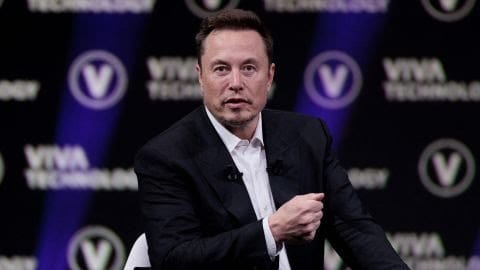Elon Musk’s Neuralink Achieves Milestone with First Human Brain Implant
Elon Musk, the visionary entrepreneur and founder of Neuralink, announced on Sunday that his company has successfully implanted the first chip in a human brain.
The patient, who underwent the procedure two days ago, is reported to be recovering well. Musk shared the news on his social media platform X (formerly Twitter), stating, “Initial results show promising neuron spike detection.”
Neuralink, Musk’s ambitious venture, has been at the forefront of developing brain-machine interface technology, aiming to connect the human brain directly to computers. The recent achievement comes after years of research and development, with the company facing both challenges and scrutiny along the way.
The billionaire entrepreneur, known for his bold and innovative projects, had previously revealed the company’s goal of creating a brain-computer interface to enhance human capabilities. Musk envisions a future where individuals can control computers or devices using their thoughts alone.
Neuralink’s journey has not been without setbacks. In 2022, the company faced criticism and a federal investigation following the death of a monkey during an attempt to demonstrate brain-machine connectivity. Despite the challenges, Neuralink received FDA clearance for human clinical trials in May of the previous year.
The “PRIME Study,” or “Precise Robotically Implanted Brain-Computer Interface,” initiated by Neuralink, focuses on testing the safety and functionality of the brain implant and the surgical robot. The trial involves patients with quadriplegia caused by cervical spinal cord injury or amyotrophic lateral sclerosis (ALS).
The implantation process involves surgically placing a chip in the brain’s motor control region, allowing the recording and transmission of neural signals to an accompanying app. The primary goal is to empower individuals to control a computer cursor or keyboard using their thoughts.
While Musk’s announcement marks a significant step forward, it also raises ethical and regulatory considerations. Brain-computer interface devices, as outlined by the FDA in 2021, require rigorous evaluation before entering the broader market.
Other companies, including Synchron, have also been exploring brain-machine interfaces. Synchron gained FDA clearance to test a device in humans in 2021, providing Neuralink with competition in the rapidly advancing field.
Tara Spires-Jones, president of the British Neuroscience Association, acknowledges the potential of brain-nervous system interfaces in aiding individuals with neurological disorders.
However, she emphasizes that these interfaces are still experimental and involve invasive neurosurgery, indicating that widespread availability may take many years.
Elon Musk’s announcement has ignited curiosity and speculation about the future applications of Neuralink’s technology. With Musk hinting at the first product named “Telepathy,” intended for users who have lost the use of their limbs, the world awaits further details on the transformative possibilities of this pioneering brain-machine interface.
Source: TechMag.TV



